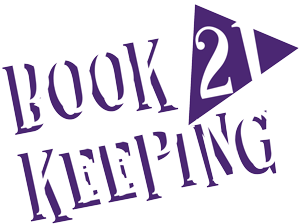A recession can be considered a financial plague for small and unprepared businesses. Thousands of companies go out of business, and hundreds of thousands of people get unemployed during a recession. This was true for the previous recessions and market crashes that had pure financial origins, and it’s equally true for the pandemic that we are going through now. In some cases, the current recession is even worse than the previous ones because it has hit businesses in the most organic way possible: By eliminating demand.
At the pandemic’s peak, most people were locked off in their homes, markets were empty, planes were grounded, and most businesses saw their sales declining to dangerously low levels. Some sectors and industries were hit harder than others. And local and federal aids might have helped some businesses survive the pandemic, but relatively few were as lucky.
Everything about the pandemic and recession spells doom for many small businesses, but we can’t ignore the fact that several businesses thrived during the pandemic. Many companies earned more money in these months than they did in the previous year. Were they just in the right place at the right time? Or the business people and entrepreneurs running those companies saw opportunities that others couldn’t? Several factors might govern a business’s ability to survive (and thrive) in a recession. Some of that might be in an entrepreneur’s control, while others aren’t—understanding which is which might help you make some tough survival decisions.
Why Some Businesses Survive and Thrive During A Recession?
Whether you are an entrepreneur who has lost business, suffered a severe cash crunch, had to shrink operations, or you are a would-be entrepreneur, you need to take a closer look at the businesses that went through the pandemic unscathed.
The nature of the business was an essential factor. Essential services, for example, found themselves busier than ever. We can even say that these businesses played a crucial role in keeping our societies functioning during hard times. Medical-related businesses, cleaning, utilities, food and grocery-related businesses are just some examples that did exceptionally well during the pandemic. On the other side of this spectrum are businesses that were hit worst. Airlines, hospitality, vacation, furniture stores, and retail stores depend quite heavily on a proper work/school routine or a heavy foot-fall.
Digital marketing and E-commerce businesses thrived during the pandemic. That’s important to note for entrepreneurs because a lot of conventional businesses can be turned into e-commerce ones. And that’s what many businesses tried to do: Create and expand their online presence, so if they can’t sell their products or services through a physical location, they might be able to do so digitally. That’s what kept digital marketing firms so busy during this time.
Another element here is the businesses that could easily switch to a remote working model. This flexibility allowed many businesses to keep operating even when half their staff was isolated in their homes. This doesn’t work for every type of business. Construction businesses cannot go this way.
Many of these businesses thrived because of their inherent nature, core-business model, and the products/services they offered. Grocery businesses thrived because while at home, people cooked more. Delivery businesses boomed because even while confined in homes, people needed their creature comforts provided to them.
What entrepreneurs can learn from it is that they should understand the risks and weaknesses of the business they are starting before going all in. The risk is practically high when you run a specialized business. Starbucks is an eye-opening example. The characteristic coffee brand, which dominates its particular niche market, reported a lost first-time in seven years.
The situation with Starbucks is a bit different from other food and restaurants because it relies pretty heavily on the routine of its patrons. They might have a habit of grabbing a coffee on the way or on their way home. But when they are at home, chances are they would most likely content with what they can get at home or near them. On the other hand, some fast food joints (like Popeye’s) saw sales numbers rise (partly because of their chicken sandwiches).
How To Survive And Scavenge For Opportunities
A recession and pandemic can be an entrepreneur’s worst nightmare or offer amazing opportunities, depending on what the nature of your business is. But there is another factor that comes into play on a business’s survival and eventual recovery: Financing. If you have access to a lot of liquidity, that allows you to keep the payroll running and stay ahead of your financial obligations, surviving a recession is not only possible but might turn profitable.
Businesses that can survive till the last stages of a lengthy recession usually become more profitable. A recession can be great at getting rid of the competition. And while it might sound brutal, it does level the playing field a bit, especially for small, unnoticed businesses that couldn’t be seen swimming in a sea of similar businesses. Also, few surviving businesses manage to get a head start and can secure a larger portion of available business and clientele as the economy starts to recover.
There are several ways an entrepreneur can help its business survive and find opportunities specific to a pandemic or a recession.
1. Catalog your business’s resources that you can turn into cash. Ideally, you should have enough liquid assets at any given time to keep the business operational for a year, even when it’s not generating enough revenues to sustain itself. Dealing with human resources during a recession or a pandemic can be tricky. You shouldn’t let your employees go in harsh times so that they might stay loyal to you in good times. On the flip side, recession creates a lot of joblessness, which expands the potential employee pool, so you might have the chance to add some amazing talent to your company post-recession.
2. If your business model, services, and product range are flexible enough, you can focus more on what’s in high demand during a pandemic or a recession. For example, a chemical company might start producing hand sanitizer (if there are no regulatory concerns). A transportation service might partner up with delivery services, and food businesses that focused more on fine dining can start offering deliveries or packaged food products. Again, it might not work for every business, but most businesses can find a previously unexplored revenue generation avenue during a pandemic. During a recession, reducing prices, swapping services for services instead of payments (B2B), or allowing your clients to defer service/product payments to a later date might be enough to make them choose you over your competitors. It’s highly influenced by how close your business is to consumer staples because many people tend to stay clear of discretionary spending altogether when going through a recession.
3. Focus on your digital front. If you don’t already have a strong social media presence, a pandemic might be the right time to build one. If you can’t invest any money in it, go in DIY mode. Unlike times when your business is thriving, and you don’t have time to experiment with things that fall outside of your competency domain, a recession might be the perfect time to focus on such things. You can even enlist the help of some of your tech-leaning employees. But that might require some persuasion or encouragement, especially if you ask them to step out of their competency and expertise sphere.
4. According to Forbes, there are certain benefits associated with starting a business in a recession. There are more credit options available (some lenders are eager to lend to credible borrowers), and it can be cheaper to run a business. It actually is cheaper, but on the flip side, the revenue generation would be significantly lower. But the problem is that most entrepreneurs with a startup, especially in their first few months, are typically operating the business out of their own pocket. And in a recession, they may not have to spend too much on services/products that a startup might need, compared to the time when the economy is booming.
5. The most important opportunities an entrepreneur gets during a recession or a pandemic are learning opportunities. People learn more from hard times and failures; than they do from success and growth. A recession can also be a good time to help entrepreneurs understand whether they are cut out for it. Because in a recession, all the problems and issues a business might be facing are coming from outside. And if an entrepreneur doesn’t have the spirit and courage to face-off against an external failure, they might not have the capacity to grow past their internal weaknesses. Recession teaches practicality as well, and many partnerships splinter into individual sole proprietorships, and it might be a good thing in the initial stages of a business. It’s worse when a business matures, and brands are established.
Conclusion
It’s very easy to blame the recession or a pandemic for a business’s failure and very difficult to evolve to survive something that’s brutalizing the broader market. And there is a high probability that your business might not survive, even if you expand every conceivable effort. But that can also teach you many valuable lessons like what fundamental strengths your business should have if it is to survive a recession.
A pandemic or a recession can be both your worst nightmare or the best thing that ever happened to your business. But that doesn’t just depend on the nature of your business and the resources at your disposal. It also depends upon your mindset, your tenacity, and your will to survive despite hardships.

